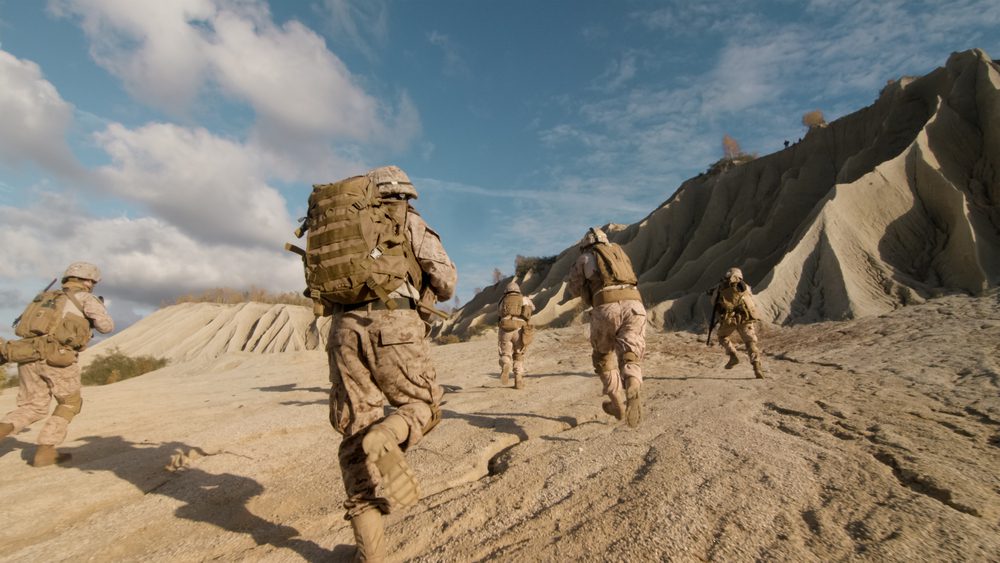‘Precipitous,’ ‘Unilateral,’ and Vietnam-like: Congressional GOP Slam Trump Afghan Plan

With few exceptions, Congressional Republicans united in slamming President Donald Trump for his announced decision to reduce the U.S. troop presence in Afghanistan to 2,500 by Jan. 15. One Republican senator even compared Trump’s Afghanistan drawdown to the situation in Saigon during the Vietnam war.
There are currently roughly 4,500 U.S. service men and women deployed in Afghanistan.
Republicans described the drawdown plan as “precipitous” and “unilateral” — even though the war in Afghanistan has been proceeding for 19 years, Trump promised the drawdown during his 2016 campaign, and the proposed plan leaves a residual force in Afghanistan.
“A rapid withdrawal of U.S. forces from Afghanistan now would hurt our allies and delight the people who wish us harm,” Senate Majority Leader Mitch McConnell said Monday.
Speaking from the Senate floor, McConnell said a U.S. drawdown would “embolden” the Taliban and give al-Qaida “a big, big propaganda victory and a renewed safe haven for plotting attacks against America.”
Sen. Mitt Romney (R-Utah) slammed the decision to withdraw and said the Trump administration has “yet to explain why reducing troops in Afghanistan… is a wise decision for our national security interests.”
“You can’t simply unilaterally draw down troops,” said Sen. Mike Rounds (R-S.D.), a member of the Armed Services Committee. “I think it’s a serious mistake to unilaterally walk away.”
Sen. Marco Rubio, chair of the Senate Intelligence Committee, compared the drawdown to Vietnam.
“The concern would be it would turn into a Saigon-type of situation where it would fall very quickly and then our ability to conduct operations against terrorist elements in the region could be compromised,” said Rubio, in a brief interview with Politico. “That’s my primary concern right now.”
Rubio’s bizarre statement, which implies that the U.S. should have kept fighting in Vietnam, is representative of the disjointed responses from GOP members of Congress. They’re not clear on what the U.S. should, or can, achieve by remaining in Afghanistan — but they’re certain that withdrawing will lead to another 9-11.
The aim of the war in Afghanistan, launched just after the September 11, 2001 terror attacks, was to destroy al Qaeda. The war’s aims soon mushroomed to include conquering the Taliban and creating a Western-style democratic Afghan government capable of ruling and protecting the Afghan people.
Over 2,300 Americans have died in Afghanistan. The U.S. has spent $2 trillion on the war. Yet today, the Taliban controls more territory than it did when the U.S. invaded in 2001. By some estimates, Kabul controls only a third of Afghanistan’s 407 districts.
Last February, the U.S. and Taliban agreed that the Taliban must renounce al Qaeda and terrorist attacks as a precondition for a U.S. withdrawal. That hasn’t happened. In October, Afghanistan had its highest civilian death toll in over a year.
“It is imperative, for our own national security, that a counter-terrorism force remain in Afghanistan until conditions warrant their removal. A counter-terrorism force in Afghanistan is an insurance policy against another 9/11,” said Trump confidant and hawk Sen. Lindsey Graham.
Graham then explicitly rejected the terms of the withdrawal agreement the U.S. made in February saying he is “hopeful but very suspicious of any efforts by the Taliban to reject al-Qaeda in any meaningful way.”
“Withdrawing troops rapidly might make some people feel better, but it won’t be good for American security,” wrote veteran Rep. Dan Crenshaw. “We will be right back in the same place as pre-9/11. No deterrence, no situational awareness, vulnerable to emboldened terrorists.”
Crenshaw and many Congressional Republicans are ignoring some key facts.
Since 2001, U.S. forces have killed Al Qaeda leader Osama Bin Laden.
Today, “al-Qaeda is in crisis” and “is no longer capable of conducting large-scale attacks,” according to Christopher C. Miller, the new acting secretary of defense and recent director of the National Counterterrorism Center.
Although the Taliban hasn’t been vanquished, it is unlikely to risk the territorial gains it has achieved by allowing Afghanistan to launch a 9-11 style terrorist plot.
Despite the united images conjured by so many Republicans in their response to Trump’s drawdown announcement, the facts provide little grounding for their fears.
Comments